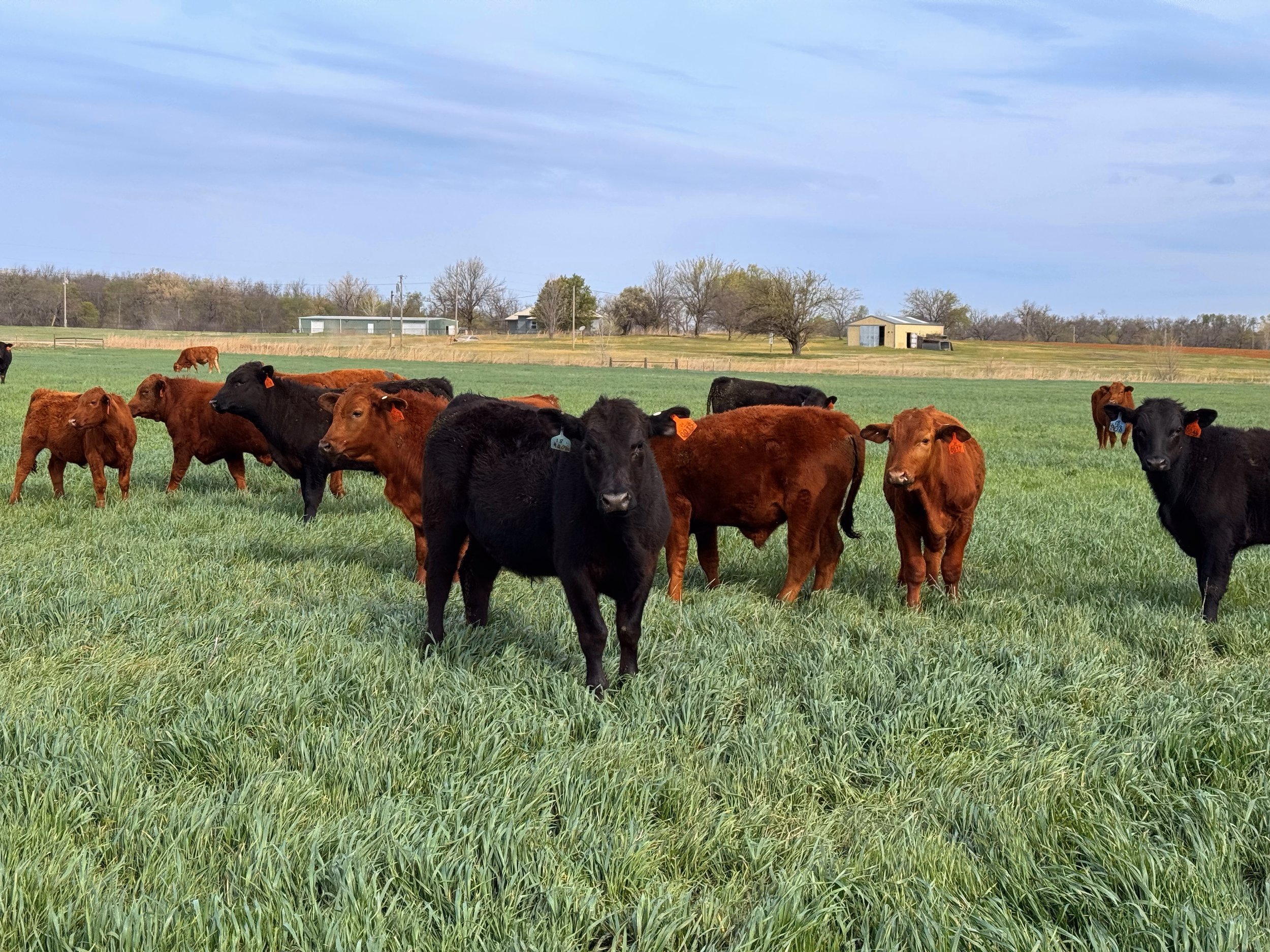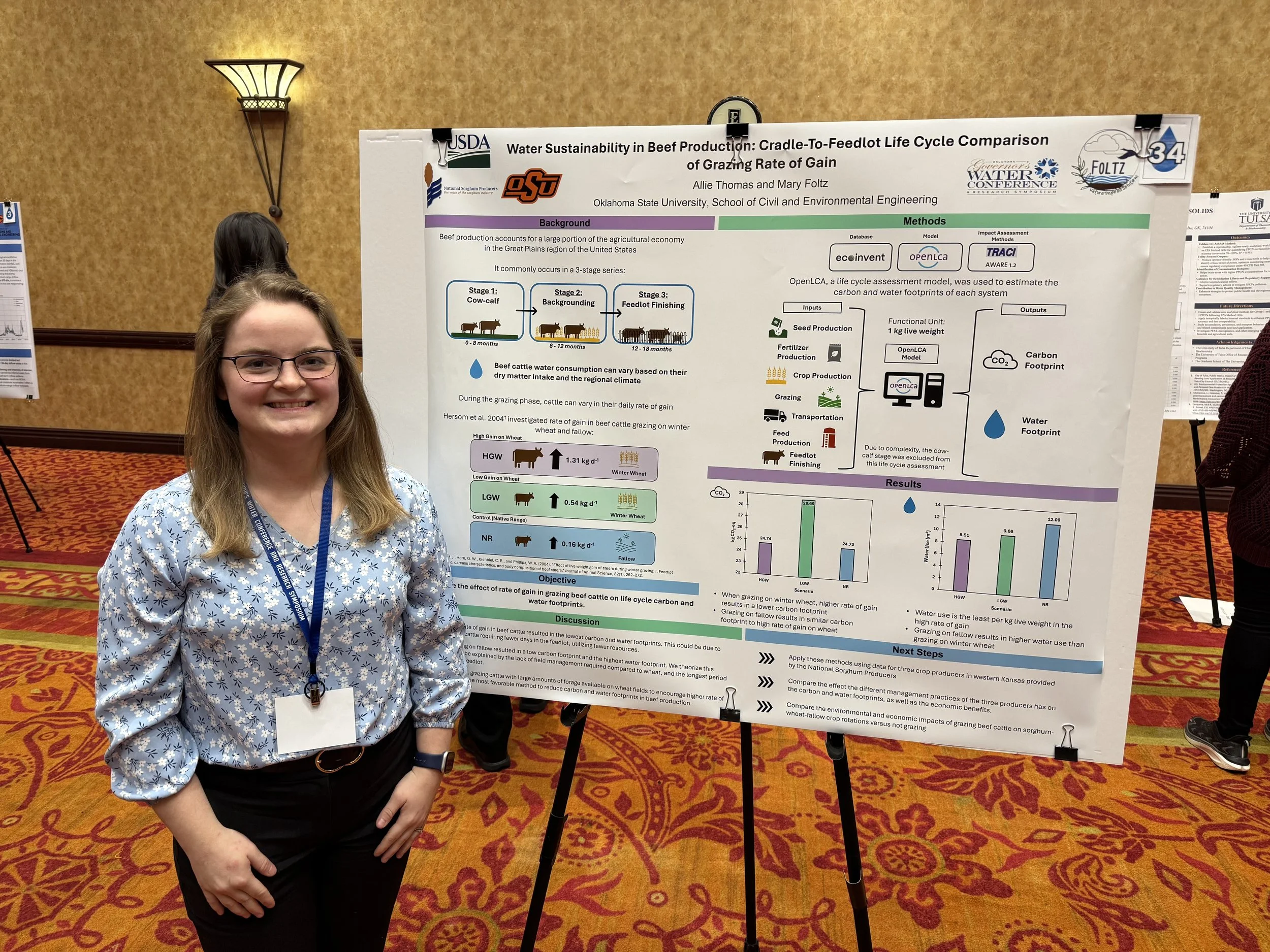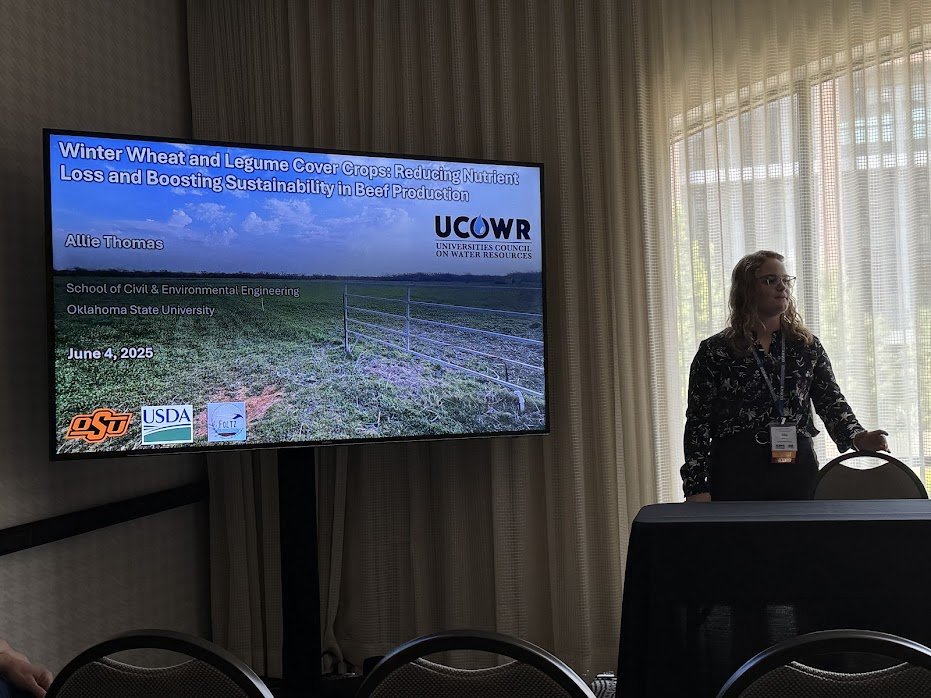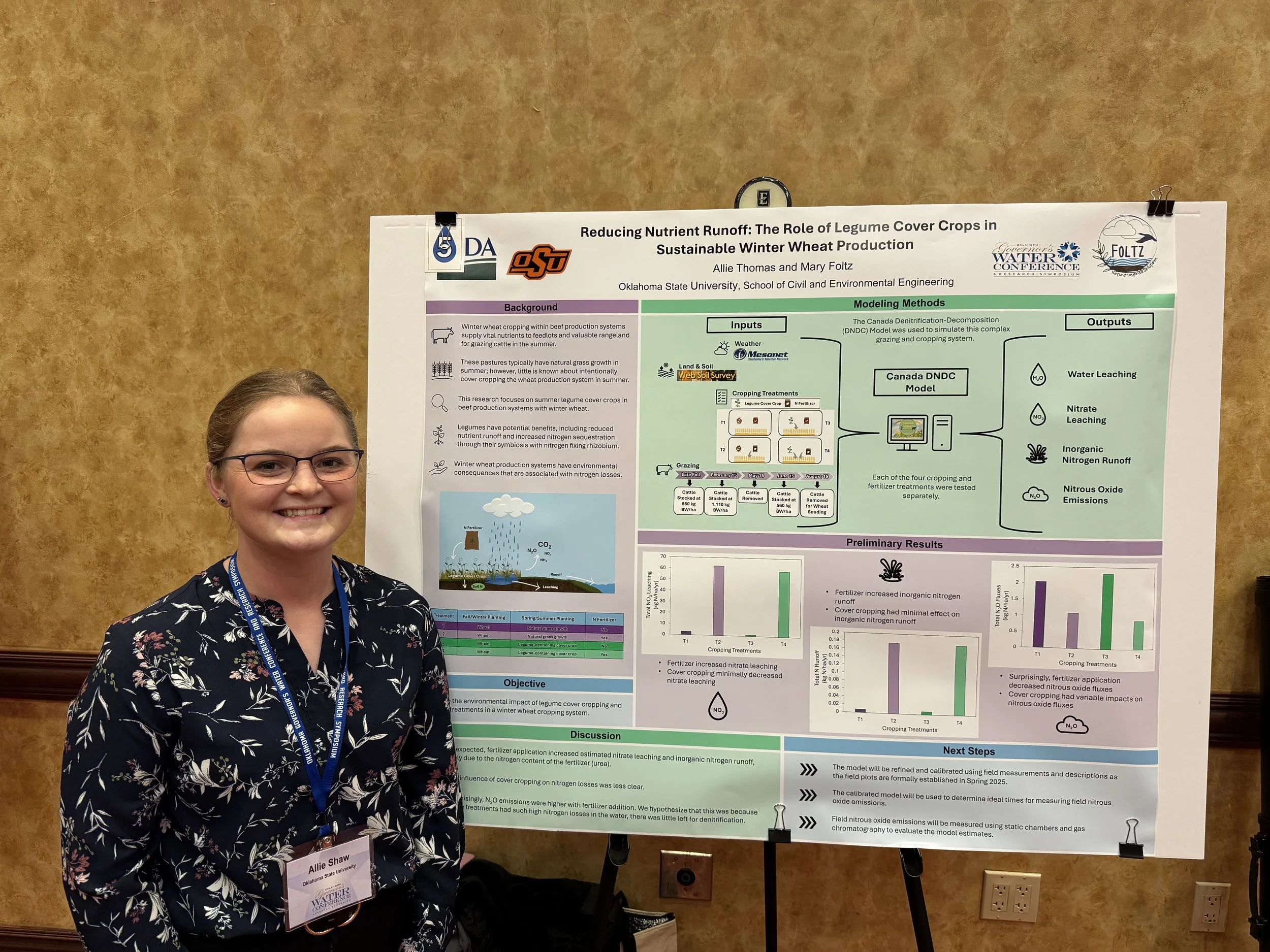
“Improving sustainability of beef production by utilizing legumes in summer cover crops to reduce grazing systems nitrogen emissions”
Funded by USDA-NIFA-AFRI & Led by Dr. Andrew Foote
This project aims to improve environmental sustainability in cattle production systems by determining the impact of incorporating summer legume cover crops in wheat pastures on nitrous oxide (N2O) emissions. Legume cover crops are a common rotation crop that aid in nitrogen sequestration and denitrification and have been found to provide the proper nitrogen required for grass species, such as wheat, to grow. By replacing the commonly used nitrogen fertilizers with legume cover crops, we hope to determine if this practice would lower emissions without compromising crop profitability for the cattle production system. We are working to answer this question with a combination of modeling and field approaches.
“Advancing Markets for Producers: Life Cycle Assessment of Grazing in a Wheat-Sorghum System”
In partnership with National Sorghum Producers who are funded by USDA & General Mills
The National Sorghum Producers are working on a large project funded by the USDA & General Mills to assess the overall impact of cattle grazing on a wheat-sorghum-fallow rotation. They have contracted us to complete life cycle modeling of the grazed vs. ungrazed wheat-sorghum systems. We are modeling the existing grazed vs. ungrazed wheat-sorghum systems to estimate life cycle environmental impacts (specifically carbon and water footprints) and comparing them to traditional systems (i.e., entirely finished in feedlots) to assess environmental benefits of the proposed management. We will also estimate any financial benefits through application of life cycle costing. By the end of the project period, we plan to provide the National Sorghum Producers with a generalized model for Western Kansas that can estimate environmental benefits of sorghum grazing in dryland systems based on acreage. This model could later be expanded to additional areas across the nation. Graduate student Allie Thomas is leading the analysis from our team.

Allie's poster at the Oklahoma Governor's Water Conference 2025

Allie's first flash talk at UCOWR 2025; she won first place in the poster competition!

Allie's first poster presentation at Oklahoma Governor's Water Conference 2024

Allie collecting gas samples at her field site
